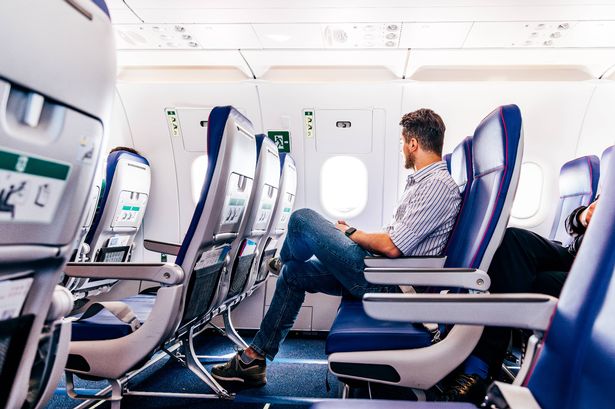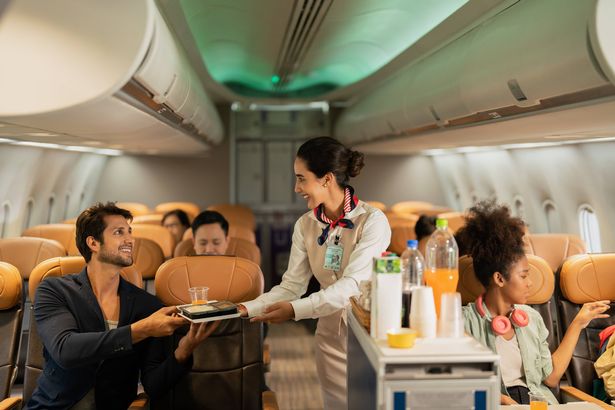Aircraft swaps, or equipment changes, are becoming routine as airlines juggle fleets to cut costs, cover technical issues, or respond to delays
Airline passengers across the UK are increasingly finding that the seat they booked, or even paid extra for, disappears at the last minute.
This practice, known in the industry as ‘aircraft swaps’ or ‘equipment changes,’ is becoming routine as airlines juggle fleets to cut costs, cover technical issues, or respond to delays.
Latest analysis has found that this airline procedure, swapping an aircraft just before departure, affects nearly 140,000 flights every year in the UK. And for passengers that can often mean losing a reserved seat, being downgraded, or facing overbooking when a smaller plane replaces the original.
Fleet shortages, staff strikes, and ongoing weather disruptions make last-minute swaps more likely, says AirAdvisor, an air passenger rights company.
And while you would be forgiven for thinking that your ticket guarantees a specific plane or seat it, in fact, only guarantees travel in a given class between two points. That legal grey area leaves thousands unsure of their actual rights.
READ MORE: UK caravan owners ‘devastated’ and ‘lost everything’ as holiday site suddenly closesREAD MORE: Alton Towers just revealed it’s opening a Bluey-themed rollercoaster next year
AirAdvisor’s analysis found between 1 per cent and 5 per cent of flights face aircraft changes within 24-48 hours before departure, rising to more than 5% at peak periods on legacy carriers like British Airways and Lufthansa.
Low-cost carriers such as Ryanair and easyJet are less affected because of their standardised fleets, but summer demand spikes increase the risk across the board. If you’ve ever turned up for a flight only to find that the seat you’ve booked or paid for is no longer available, it’s crucial to know your rights.
These rights vary depending on the situation.
Downgrading: If you’re bumped down to a lower class, UK261 regulations entitle you to a refund of 30-75 per cent of your ticket price, depending on the length of your flight.
Seat loss: If you’ve forked out extra for a specific seat (like an exit row, window, or aisle), you can claim a refund of that surcharge if the seat is no longer available. However, if you didn’t pay extra, airlines can reassign you within the same class without offering compensation.
Overbooking due to smaller aircraft: Passengers who are denied boarding are entitled to compensation ranging from €250-€600 (£216 – £519), plus rerouting or a refund.
Unwanted aircraft type: If your flight is reassigned to a model you’re not comfortable flying in (such as the Boeing 737 MAX), airlines aren’t legally required to change your booking. However, some might rebook you as a goodwill gesture if you act quickly.
At present, there’s no regulation requiring airlines to inform passengers of seat or aircraft changes, except when they’re downgraded to a lower class. This legal grey area can be problematic, especially when passengers have paid extra for seat selection or comfort.
As a result, these swaps often happen without any advance warning, leaving passengers caught off guard.
Some consumer groups have argued that airlines should notify passengers of any alterations, giving travellers the right to accept or decline new seating arrangements, and providing automatic refunds when services aren’t delivered as promised.
However, the current review of UK261 regulations, which is being debated in Brussels, has caused some concern. Rather than bolstering passenger protections, certain proposals could actually weaken airlines’ duty to compensate travellers when flights are delayed or scrapped.
Meanwhile, the matter of aircraft substitutions – which are becoming increasingly frequent – remains largely overlooked in the talks.
For British travellers, this means a greater chance of finding out at the departure gate that their seat has vanished or that their flight has fewer places than anticipated.

